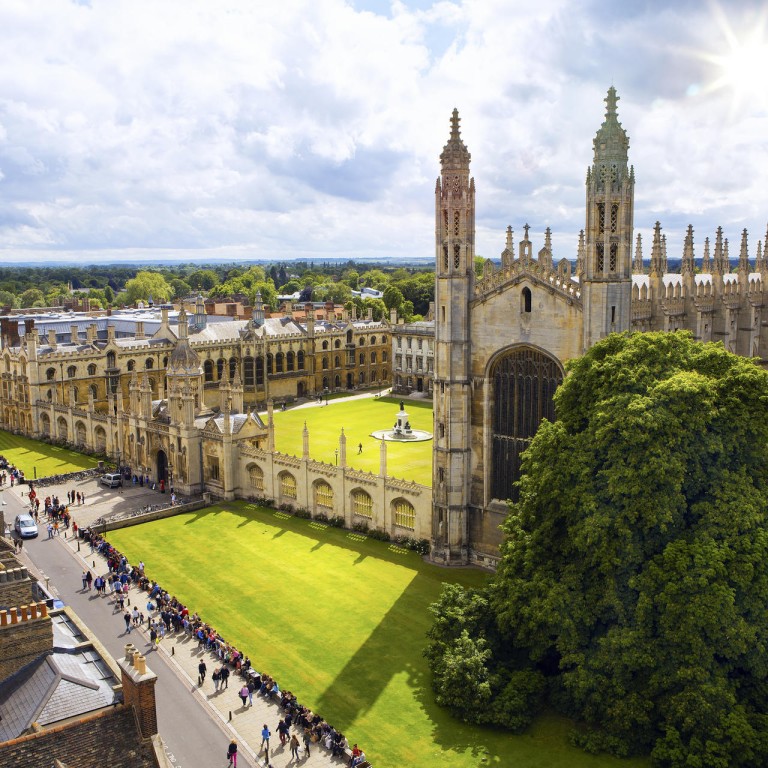
Intensive A-level study puts Hongkongers on track for a top university
Hong Kong students who consider the International Baccalaureate and Diploma of Secondary Education unsuitable pursue a third course in their free time or at private study centres
Results were released last week for students who completed the International Baccalaureate (IB) Diploma in May. As always, a number were jubilant with above average or even perfect scores.
But despite its popularity, the IB does not necessarily suit everybody. Neither does the Hong Kong Diploma of Secondary Education (DSE) curriculum modelled after it.
Some students are taking the third option - doing A-level courses in their free time or taking them in private centres with hopes of augmenting their chances of entering a top university. A-levels are academic qualifications offered by British educational bodies to students completing secondary education worldwide. Candidates freely pick three or four subjects and focus on their strengths.
In contrast, candidates for the IB Diploma and DSE - which emphasise all-roundedness - must take subjects across the academic spectrum.
Last year, Arch Education launched Hong Kong's first accelerated One-Year A-level Course, as opposed to the typical A-levels which normally take two years to finish, in partnership with MPW in Britain, a group of schools specialising in the One-Year A-level Course.
The one year full-time, exam-based course is already widely available in Britain. In Hong Kong, five pupils were enrolled in it. Emma Humphries, academic director of the One-Year A-level at Arch, says the offer is not meant to be a shortcut to university. "We would prefer students to have studied at least one year of senior secondary school, as the A-level is an intensive course," she says.
She adds that each teacher at Arch is in direct contact with a faculty director for their subject in Britain right from the beginning. "Our maths teacher in Hong Kong is linked up with the head of maths at MPW," she says. "We work closely together to set out that timetable, week by week."
MPW is also registered with Britain's Department of Education, so those enrolled in the local programme can receive academic references as well as predicted grades, which British universities consider before offering a place. Considering that the students may also have unusual academic histories, Arch will explain in their reference letter why the applicant joined this programme.

For 18-year-old Jeremy Lin, the course was a gruelling process of sitting almost 20 papers a month. Every week there were practice tests.
"They keep you on your toes to make sure you pay attention in class, because you know there's an exam coming this week," says Lin. "If you miss it this week, it's just going to be harder the week after."
His efforts have paid off. Based on his predicted grades from Arch, he has received offers from all seven British universities he applied to, including a conditional offer from his top choice, King's College London.
Lin was studying the IB Diploma in an international school in Hong Kong but left without completing it for personal reasons. He had been out of school for a year when he signed up for the course.
Two of his classmates had been studying at boarding school in Britain, but left before graduation for personal reasons. Both have received conditional offers to study biomedical sciences at University College London. They were as highly motivated as Lin.
Jennifer Ma Yin-wai, founder and director of Arch Education, says she has noticed senior secondary students over the years who are "stuck in their curriculum", either the IB Diploma or the DSE. While they are strong in certain subjects, their weaker subjects dragged down their total scores. As a result, they weren't admitted into competitive disciplines such as medicine.
There were also students who had not taken or needed to retake certain required subjects for their desired university course. This group may want to switch out of their current curriculum without repeating a year. "These two groups of pupils are bright," says Ma. "But their curriculum is not helping them get into a good university." She expects students enrolled in the intensive programme to struggle a bit but still be strong in certain subjects.
Terence Chang Cheuk-cheung, former headmaster of Diocesan Boys' School, which offers the IB, says he knows of students who registered for the A-level while still in school. "It is possible to self-study for the A-levels and practise by doing past papers," he says.
However, some parents are worried about the pressure of regular schooling combined with self-studies. A mother of two, who is also a teacher, calls on well-resourced organisations such as the English Schools Foundation to incorporate the A-level into their curriculum so students have that option.
Some schools that have 100 to 200 students in a year group could actually offer A-levels plus the IB. "They have qualified teachers to teach either of them," the mother says.

"The biggest schools have more responsibility to offer both A-level and IB side by side. To be a complete, all-round school, they need to have both."
On second chances, she says: "It's fantastic to have a retake; for IB students, if they do it badly, they have nowhere to go."
This coming school year, Arch will add tutorial courses politics and economics to its core of biology, mathematics and further mathematics, chemistry and physics. One-on-one tutoring can be arranged upon request.
